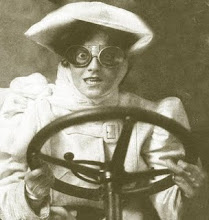When you're looking at study abroad programs, any good program will tell you what kind of language requirement they have, if there is one. This program specifically stated no knowledge was necessary (although individual courses, like the languages ones, had requirements depending on their level). But the thing to keep in mind is that is just the program.
Lueneburg is a moderately-sized city, I would say, and I rarely have a problem. If I didn't want to put out an effort, I could get through my entire five weeks using minimal German. I've been to all of one place (a small doner kebab joint) that didn't speak English, and as long as you keep your favorite stock phrase handy ("Sprechen Sie Englisch?") and point a lot if they don't, you're good.
But then, why are you here in the first place?
If this blog post were a movie, this would be where the camera gets shots of me from five different angles as the other characters realize what a profound statement I've uttered.
My German sucks. Two of my stock phrases (besides the aforementioned one) are "ich spreche nur ein bisschen Deutsch" and "mein Deutsch is sehr schlekt!" ("I speak only a little German" and "my German is very bad!" and if these are incorrect, well, that just shows how true it is.) These come in handy because when I'm faced with a rapid-fire spiel from a sales clerk, they're usually understanding if I don't respond in kind. And yeah, it's really handy to be able to ask if they speak English, whether you couple that with one of the other phrases or not. Sometimes I'm mentally exhausted and just cannot produce the brain power necessary for translating, and most of the time I don't know any words that would work.
Plus, and I'll admit it, there's a slight feeling of embarrassment when I'm doing the pidgin equivalent of German, fully knowledgeable of the fact that they're fluent in English.
Anyway: people are usually very understanding, though, when you make an effort despite being the worst person to ever try to learn German, ever. While in Celle, I went into a cafe/restaurant, and had a half-English/half-German conversation with the waitress, who told me my German was better than her English--it wasn't, but that was high praise in my book, especially because I was able to do more than just read things off a menu.
Friday morning, I missed the bus I wanted and had to hang around for half an hour until the next one came. Up came a little old lady who called some thing German. After asking her to repeat it, I was able to answer that today was Friday, not Thursday. For the next half hour, we had a conversation that covered everything from where I was from and why and how long I was in Lueneburg to something about how she doesn't (or isn't allowed to?) drive anymore, and she's going to get cat food for her cat (single, not multiple--I clarified. Also age 5), and the story of how she got said cat.
Did I understand all of it? No. I understood maybe a quarter--listening for keywords to get what she's actually saying, and then nonverbal communication makes up the rest of it. I could have used one of the stock phrases, but in the past few weeks I've learned enough that I can almost follow a very simplistic conversation. One of my goals was to improve my German, and so I'm making an effort to use it as much as possible, even though it's usually limited to basics like "yes," "please," and "excuse me."
Has having a tiny bit of German helped me? Definitely. The fact is I'm in another country, so if nothing else having a pocket dictionary to decipher signs would be nice, and having the basics definitely smooths things out. But a lack of language shouldn't deter someone, either. One of the other students in my beginning class knew absolutely NO German before coming here, none at all. Be realistic: it will make things more difficult (see again: being in another country) but it's doable. Learn your stock words and phrases, grab a pocket dictionary*, and get out there.
*Found in stores a lot here, they're about 9 euro and maybe 3 inches big. PERFECT.



































